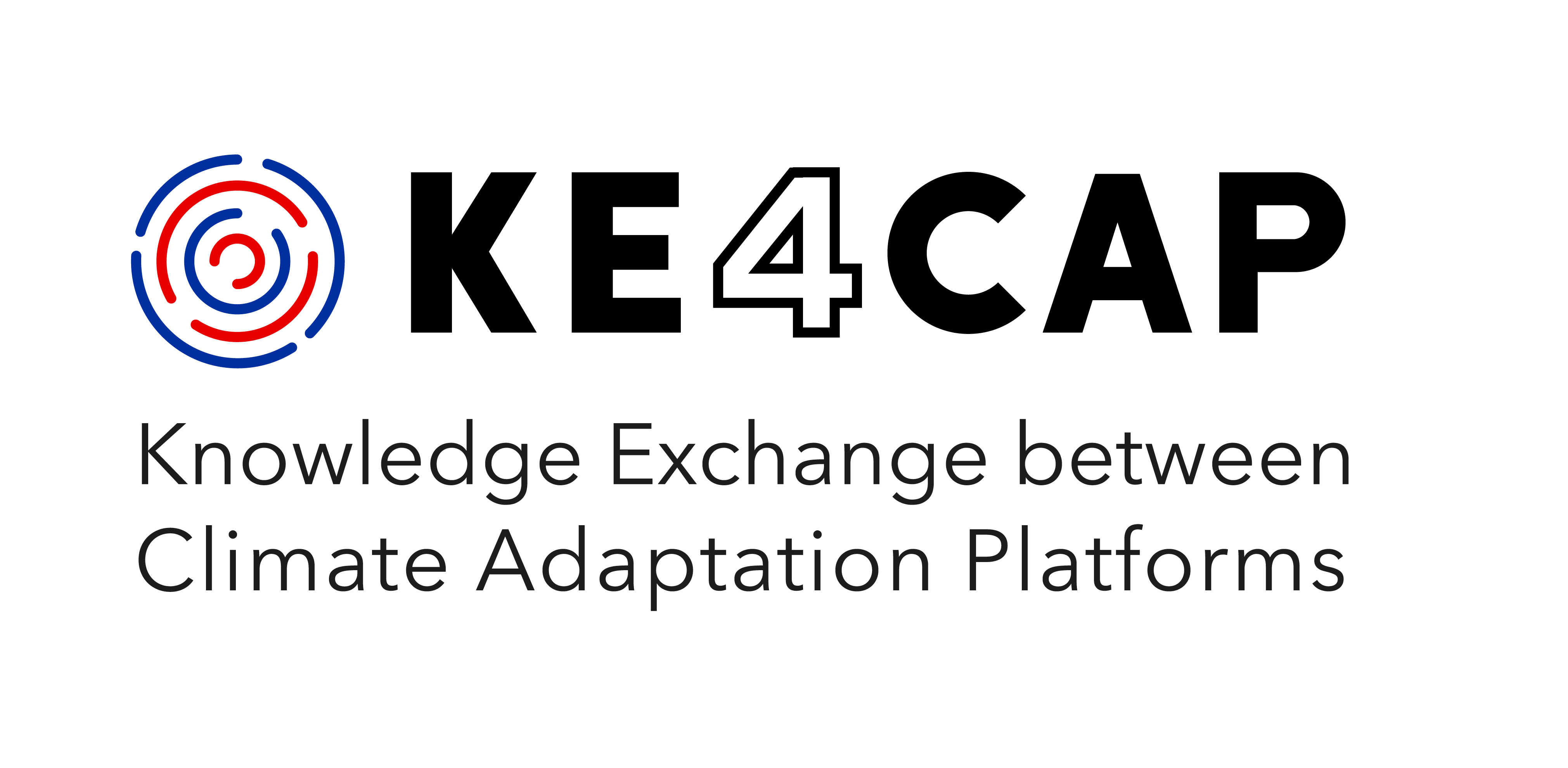
KE4CAP

- Title
-
Stepping Up Knowledge Exchange Between Climate Adaptation Knowledge Platforms (KE4CAP)
- Start Date
-
2019
- End Date
-
2021
- Funding Body
-
European Commission
- Coordinator
-
University of Oxford (UK)
- Project Partners
-
University College Cork (UCC), Stockholm Environmental Institute (UK and Sweden), Climate Adaptation Services (Netherlands)
- Principal Investigators
- Project Manager
- Research Area
- Website
Information
Climate adaptation is gaining in importance, and the Paris Agreement 2015 calls on Parties to strengthen cooperation on enhancing action on adaptation. This, along with the recognition that policymakers require high-quality and relevant information to support decision-making, has led many countries to establish web-based climate adaptation platforms. These platforms provide access to information, evidence and guidance intended to inform the development of adaptation strategies and plans at the local, national, and transnational scales. However, they are all at different stages of development and capabilities, and all face challenges that, potentially, limit their effectiveness in supporting the required climate action.
The KE4CAP project provides a forum for adaptation platform developers and operators to come together to compare and learn from their individual approaches, to share knowledge and best practices, and to work together to address common and emerging challenges. The overall aims are to stimulate knowledge exchange to advance cooperation and learning and to inspire the evolution of national and regional adaptation platforms in terms of scope, governance, content coverage, functionality and management.
Funded by the European Commission through the Strategic Partnerships for the Implementation of the Paris Agreement (SPIPA) programme, KE4CAP will focus on cooperation between EU countries and non-European major economies. This will involve holding challenge-focussed bi-laterals between the EU and Canada, Japan and Australia, and global reach will be extended further through targeted collaborations with Mexico, South Africa, Argentina and India. European experts will be involved at all stages, and the challenges and lessons learnt will be documented and shared widely to help engage across SPIPA-targeted countries and Europe.




